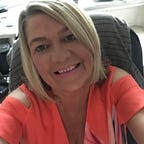Designing the AI doctor trusted by millions
It was the ultimate pivot: turning a successful AI app for doctors into a trusted self-diagnosis tool for the rest of us
We met the Ada team in 2014 and we were totally inspired by the medical reasoning technology that they had already spent years building.
The company was founded by Dr Claire Novorol. As a junior paediatrician, she used a medical database to diagnose a baby with a very rare condition that had been missed by a team of top professors. Realising how powerful technology could be, she formed the company to build an AI system trained on those medical databases.
Until we met them, Ada had been concentrating on creating a business-to-business tool for doctors and physicians. Our focus was to work together to develop a global, direct-to-consumer brand. Working alongside Ada in a blended team, we built a working prototype of the chat interface inside just two weeks.
From there, the team conducted a series of sprints, tests with real patients, and iterated both the AI and UI in harmony to create the user experience that formed the foundation of the Ada app.
Healthcare systems around the world are stretched beyond breaking point. The need for disruptive new health tech is driven by a rapidly ageing population, underfunding, legacy systems, misplaced bureaucracy and a growing reliance on self-diagnosis.
In Britain, the average GP visit lasts just 9 minutes and 22 seconds, much of that time spent answering basic questions. What if patients could spend unhurried time answering those questions in an app, with an AI system that can triage conditions?
At the heart of the Ada project was a fascinating psychological puzzle; how to create an experience that evoked enough trust for people to share their most intimate details. Could an app feel empathetic?
To better understand the real-life habits of patients, we worked with psychologists to carry out research across different cultures. The results gave us a set of ‘highest common factors’ which we used to inform the creative process. With this knowledge, we created an app with a proactive approach to the healthcare journey.
Ada’s conversational interface made it easy for people to access relevant, personalised health information and make more informed decisions about what to do next. After the assessment with Ada, patients can share their report with their physician.
A key principle is that AI was used to enhance, not replace, the doctor consultation. Doctors played a central role in Ada’s development process. Ada reports support doctors, saving precious time in the consultation room.
This early investment into better understanding both doctor and patient behaviour paid off. Since the launch in 2016, the app has completed over 4 million assessments to date, saving time, worry and even lives when emergency conditions are correctly identified and resolved.
Ada was one of Europe’s fastest-growing medical apps in 2017 and has been the top-ranking free medical app in the App Store in over 130 countries.
Artificial Intelligence, depending on who you ask, is seen as the panacea to all business problems, or the ultimate adversary in the Man versus Machine competition that human society is embroiled in. And Ada serves as a counterpoint to both those views. Artificial Intelligence is a blunt tool that, with the right sensitivity to the human aspect, can be turned into a precise, effective scalpel.
The Ada project was delivered by a team working for Albion, which is now part of Fluxx.
Jenny Burns is an Executive Partner at Fluxx Ltd. She has worked with big companies like Barclays, 02, British Gas and RSA. If you want to find out more you can email Jenny.burns@fluxx.uk.com.
To find out more about our work at Fluxx check out our articles on Medium and sign up to our newsletter.
